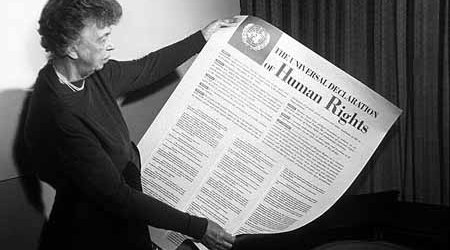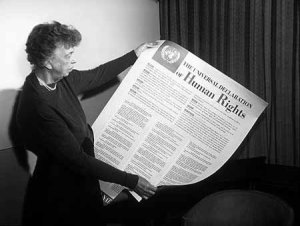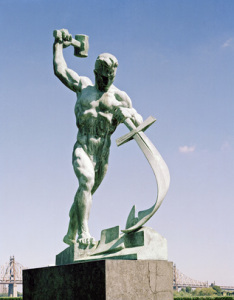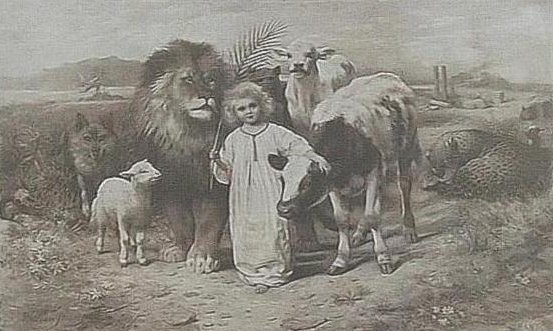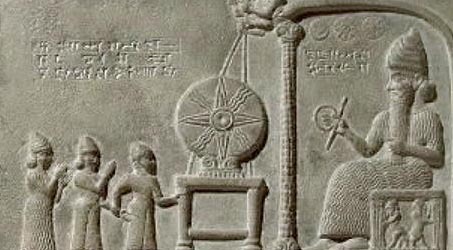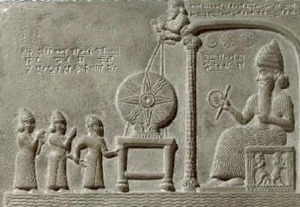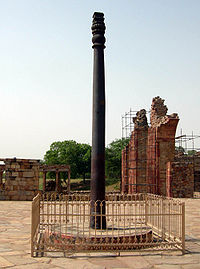 Responding to a Baha’i quote on the challenges inherent in searching for God a friend posted this tongue-in-cheek response “So. Pretty easy overall.” A mathematical formula to describe how easy it might be came to me in a flash. The difficulty we have in finding and drawing near to God equals our actual distance from God divided by how close we think we are. Let’s unpack this spiritual mathematical knot.
Responding to a Baha’i quote on the challenges inherent in searching for God a friend posted this tongue-in-cheek response “So. Pretty easy overall.” A mathematical formula to describe how easy it might be came to me in a flash. The difficulty we have in finding and drawing near to God equals our actual distance from God divided by how close we think we are. Let’s unpack this spiritual mathematical knot.Thinking we have God in our back pocket creates a mathematical impossibility. You can’t divide by zero. This is the challenge facing those who, like I once did, think they are comparatively closer to God than others.
A group I once belonged to was über-obedient. We kept many Torah Commandments, like the Sabbath, Holy days, and food laws. By having both the law and the testimony of Christ we believed we were closer to God than anyone else on earth. In some ways, maybe we were. We took God at His Word and organized every aspect of our life around obeying, following and worshiping Him.
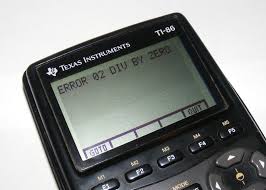 And yet belief in proximity to God kept us from drawing any closer. My personal battle with this is described in painful personal detail across the pages of the first two books of my Trilogy. The People of the Sign describes my involvement with the Worldwide Church of God and its 1995 implosion. That devastating fail was underscored by many members blaming the other side instead of becoming introspective. Being a victim of divorce and kidnapping helped me understand the two sides. Detachment helped me realize I was nowhere near as close to God as I had thought, opening up the “valley of search” described by the Baha’i quote that led to this blog.
And yet belief in proximity to God kept us from drawing any closer. My personal battle with this is described in painful personal detail across the pages of the first two books of my Trilogy. The People of the Sign describes my involvement with the Worldwide Church of God and its 1995 implosion. That devastating fail was underscored by many members blaming the other side instead of becoming introspective. Being a victim of divorce and kidnapping helped me understand the two sides. Detachment helped me realize I was nowhere near as close to God as I had thought, opening up the “valley of search” described by the Baha’i quote that led to this blog.
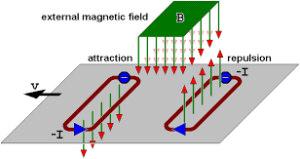
My personal search around the world is described in The Hardness of the Heart. How we view and treat our fellow man is directly related to how open our heart is to God. Self-sufficiency, judgmental attitudes and the belief that we already have enough of God in our lives creates an impassible divide between us and God.
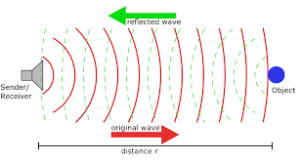 Fear of turning to God due to feelings of guilt and inadequacy are but mirror images of this arrogance. They are also expressions of a focus on ourselves. These too are fetters of ego that create distance.
Fear of turning to God due to feelings of guilt and inadequacy are but mirror images of this arrogance. They are also expressions of a focus on ourselves. These too are fetters of ego that create distance.
Yet anyone who thinks they are far away from God can easily draw nearer just by deciding to. Recognizing the distance allows us to instantly decrease it. Think of how Christ welcomed and embraced sinners, while condemning the Pharisees. Apparently such spiritual equations function more like quantum mechanics than classical physics.
 This makes searching for God sound easier than it is, of course. But on the other hand, we usually make it harder than it is. And I think that was the point of my friend’s cheeky, and well-timed response to my Facebook post. Thank God for friends who help us untie spiritual mathematical knots. Or tie them, as the case may be.
This makes searching for God sound easier than it is, of course. But on the other hand, we usually make it harder than it is. And I think that was the point of my friend’s cheeky, and well-timed response to my Facebook post. Thank God for friends who help us untie spiritual mathematical knots. Or tie them, as the case may be.

